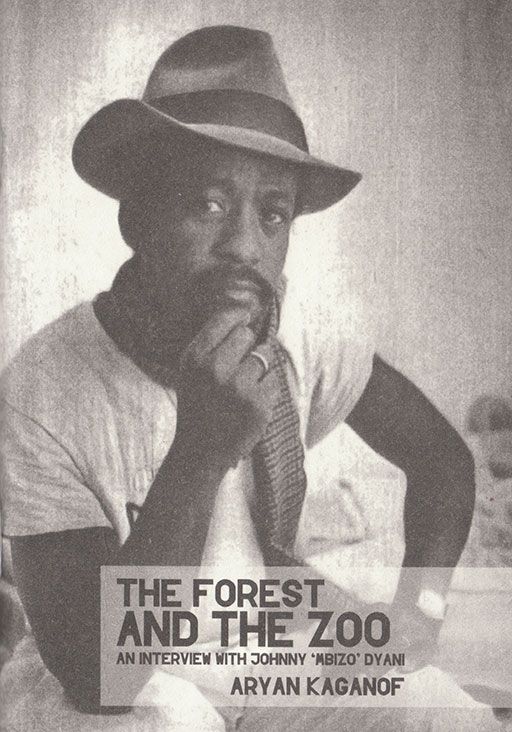LOUIS MOHOLO-MOHOLO & HERBIE TSOAELI WITH JOHNNY DYANI
In Conversation with Mbizo
I have been recording, filming and archiving material concerning South African music history since 1985. 37 years ago I started this project with an interview that I did with Johnny Mbizo Dyani in the offices of the Dutch Anti Apartheid Movement on the Lauriergracht in Amsterdam. This interview was transcribed and published in full in Chimurenga’s landmark Curriculum edition as well as published as a stand alone title in the Chimurenganyana series.


I donated the original cassette tapes of the Johnny Dyani interview to DOMUS in 2010 during the Music and Exile Symposium held at the Goethe Institute in Johannesburg in January 2010 but the interview continued to haunt me and there remained another level of mediation that was crying out to be resolved.
Dyani left South Africa to go into exile in the early 1960s with The Blue Notes, a jazz band whose influence on European jazz history and development was unparalleled, and the only member of the band still living is Louis Moholo-Moholo, the drummer who famously quipped
“we brought the wall down, the Berlin wall came down because of us, because of the free jazz that we invented.”
Not shy, Louis is also fabulously articulate and a storehouse of jazz information, a living encyclopedia of South African music lore and history. Louis had also not heard Johnny’s voice since 1986.
My idea was to confront Louis with the full recording of the Dyani interview, but not merely give him the opportunity to respond to Johnny’s call vocally; rather, more profoundly, to locate the meeting in a recording studio, with Louis sitting behind a drum kit. This allowed for an improvised call and response recording session which gives Louis the chance to respond with his full drum kit and voice, a rhythm section across time and space, speaking the blues, improvising the word, syncopating history and myth, syncretically creating an art form of the archiving process that avoids the tedium of endless fan-boy type journalism (what date what personnel what chords etc etc) but rather will speak to what is profound and truly memorable about the music form. Using music to archive music and interrogate and critique music.
Jonathan Eato contacted Louis Moholo-Moholo and explained the idea to him. His response was a muted “yes”. But he did not want to do the interaction alone. He wanted Herbie Tsoaeli in there with him. Louis is elderly, not easygoing and extremely mutable in mood. He is definitely not getting any younger and I believe there is an element of urgency in this archiving project that is different to all the other projects I would like to involve the Africa Open Institute in. Eato booked a day at the Milestone Studio in Cape Town. This film is a glimpse of what happened.